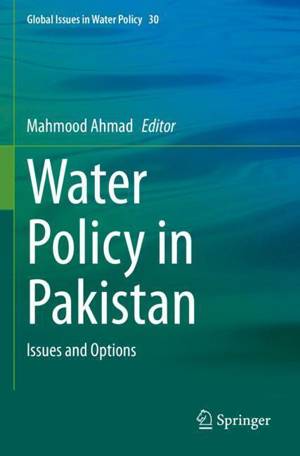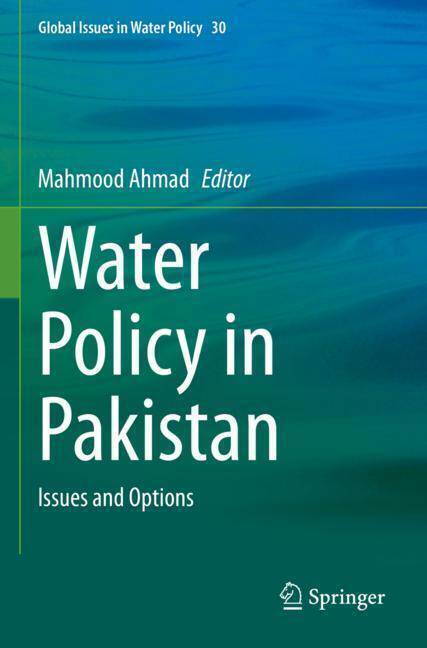
Je cadeautjes zeker op tijd in huis hebben voor de feestdagen? Kom langs in onze winkels en vind het perfecte geschenk!
- Afhalen na 1 uur in een winkel met voorraad
- Gratis thuislevering in België vanaf € 30
- Ruim aanbod met 7 miljoen producten
Je cadeautjes zeker op tijd in huis hebben voor de feestdagen? Kom langs in onze winkels en vind het perfecte geschenk!
- Afhalen na 1 uur in een winkel met voorraad
- Gratis thuislevering in België vanaf € 30
- Ruim aanbod met 7 miljoen producten
Zoeken
Water Policy in Pakistan
Issues and Options
€ 208,45
+ 416 punten
Omschrijving
The water policy issues are well- documented in a large set of reports and studies, completed over time showing that the policy prescription and its implementation has been weak in the past as this book reveals. The key reforms initiated were lost due to a lack of government's will and commitment and more so by pervasive political economy of water. Given this background, each chapter in the book follows a balanced approach in seeking and evaluating alternate solutions to water management issues, especially improvements in water governance and tackling new challenges emerging from the climate change in the short and long term. This approach underpins the importance of moving from the culture of piloting projects to actual implementation on an impact-oriented scale. The book would also highlight that most of the water solutions lie outside the water sector such as agriculture, population, economy, etc. Post COVID-19 policies are exploring new food-health nexus that calls for naturebased solutions for our future agriculture growth. The book would show case pioneer work underway in Pakistan on how new policy discourse can reduce water use in agriculture without investing in expensive water technology and infrastructure, thus saving enough water for other competing purposes.
Specificaties
Betrokkenen
- Uitgeverij:
Inhoud
- Aantal bladzijden:
- 457
- Taal:
- Engels
- Reeks:
- Reeksnummer:
- nr. 30
Eigenschappen
- Productcode (EAN):
- 9783031361333
- Verschijningsdatum:
- 28/09/2024
- Uitvoering:
- Paperback
- Formaat:
- Trade paperback (VS)
- Afmetingen:
- 155 mm x 235 mm
- Gewicht:
- 822 g

Alleen bij Standaard Boekhandel
+ 416 punten op je klantenkaart van Standaard Boekhandel
Beoordelingen
We publiceren alleen reviews die voldoen aan de voorwaarden voor reviews. Bekijk onze voorwaarden voor reviews.








